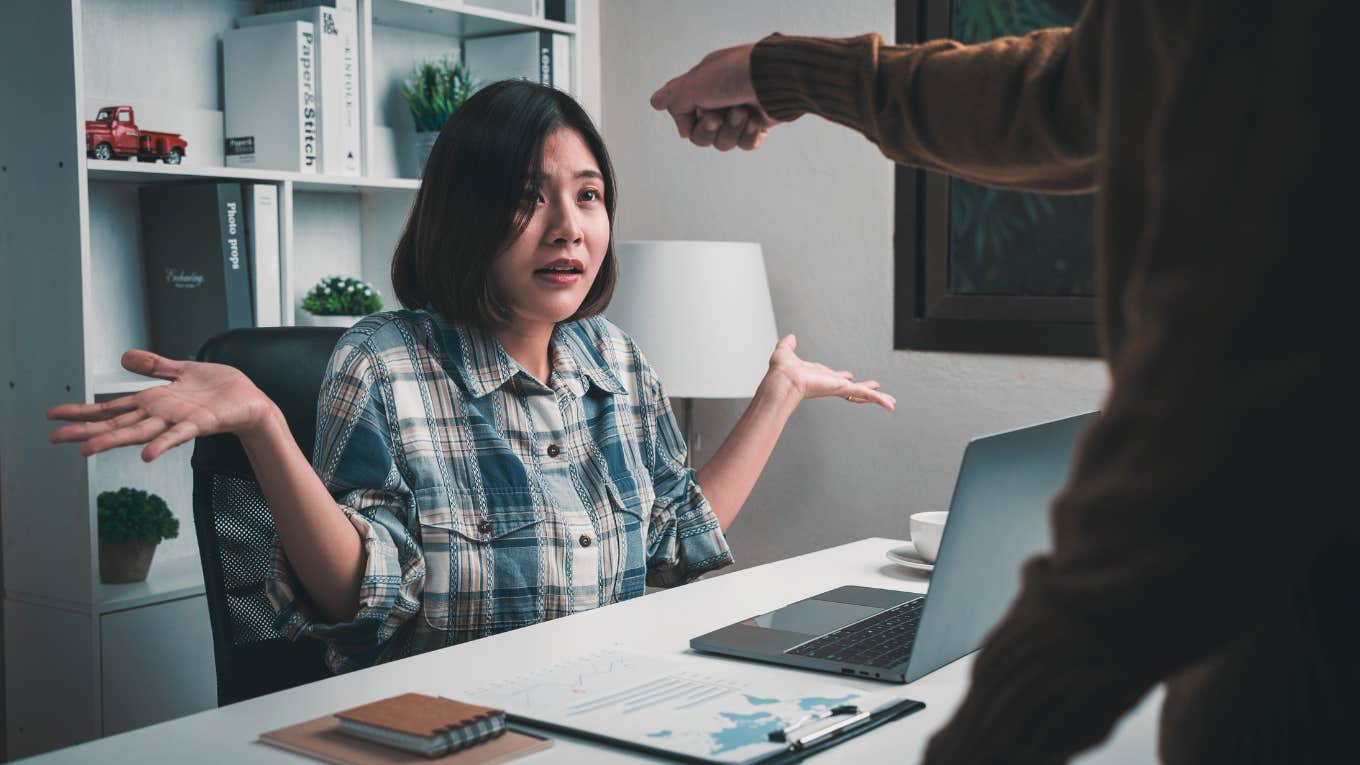Woman Admits That She's Starting To Feel 'Insulted' After Her Boss Routinely Calls Her Out For Wearing Inappropriate Outfits To Work
She pointed out that because she has a curvier body type, her boss has been reprimanding her outfits more compared to the other women at her job.
 Thx4Stock via Canva Pro
Thx4Stock via Canva Pro A woman revealed that she's feeling incredibly affronted after noticing that she is being singled out for the outfits she wears to work.
Posting to the subreddit "r/antiwork" — an online public forum where people can share their job-related struggles — she voiced her frustrations with being the target of a dress code at her job, despite the same treatment not happening for other women.
Her boss reprimanded her for wearing 'inappropriate' outfits to work.
In her Reddit post, she explained that the outfits she wears to work are all of a sudden being dress-coded by her boss, and within the last two weeks, she's been reprimanded a total of three times.
"I’ve been called into the office for 'not dressing appropriately' for work," she recalled. "I wish I had [pictures], but essentially my clothes are too form-fitting, or [show] 'too much skin.'"
 Photo: Sora Shimazaki / Pexels
Photo: Sora Shimazaki / Pexels
She acknowledged that this issue isn't abnormal for many women in the workforce, especially if they are mostly surrounded by men, but she insisted that none of her outfits are blatantly inappropriate in any way. She just has a curvier body type, so some of her clothes that fit close to her body are often sexualized on her, but just because of her body type, she shouldn't have to be told to cover up as a way for people to stop looking at her in a sexual manner.
"People with more slender figures don’t tend to be dress-coded for wearing similar things," she pointed out. "The way I dress is an expression of myself. I do tend to go for things more form-fitting because it flatters my body type the best."
Despite wearing form-fitting clothing, she remarked that none of her outfits are anywhere near risqué, and are more than appropriate to be worn in an office setting. "I try to be as low-key as possible and to get along with all of my colleagues. Yet, this recent tunnel vision on my attire has me feeling absolutely un-valued and insulted," she admitted.
Dress codes, even in the workforce, tend to unfairly target and are disproportionately harmful to women.
From being in school to having a job in the workforce, women can't seem to escape the unfair dress codes placed on them, and they have been a source of controversy and debate.
Dress codes often disproportionately target and affect women more than men. Women are frequently subjected to stricter and more specific dress codes, which can perpetuate gender stereotypes and inequality.
As this woman mentioned in her Reddit post, many of the clothes that she wears that are called into question by her boss are the same items of clothing that other women with slender body types wear in the office. By doing this, it sends the message that only certain body types are more acceptable and appropriate than others, which isn't the case at all and never should be.
 Photo: Monkey Business Images / Shutterstock
Photo: Monkey Business Images / Shutterstock
Women already face high levels of gender discrimination in the workforce as it is. According to data acquired by the Pew Research Center, women are roughly four times as likely as men to say they have been treated as if they were not competent because of their gender (23% of employed women versus 6% of men).
Women are also about three times as likely as men to say they have experienced repeated small slights at work because of their gender (16% versus 5%).
This kind of treatment can have lasting effects on a person's job satisfaction and overall mental health, as this woman even admitted that the treatment toward her outfits at work has been leaving her feeling undervalued and offended.
This woman's post highlighted the vital need to recognize that not one body type is more acceptable than others, and if there is going to be a dress code enforced in any workplace, it should reflect that.
Nia Tipton is a Chicago-based entertainment, news, and lifestyle writer whose work delves into modern-day issues and experiences.
